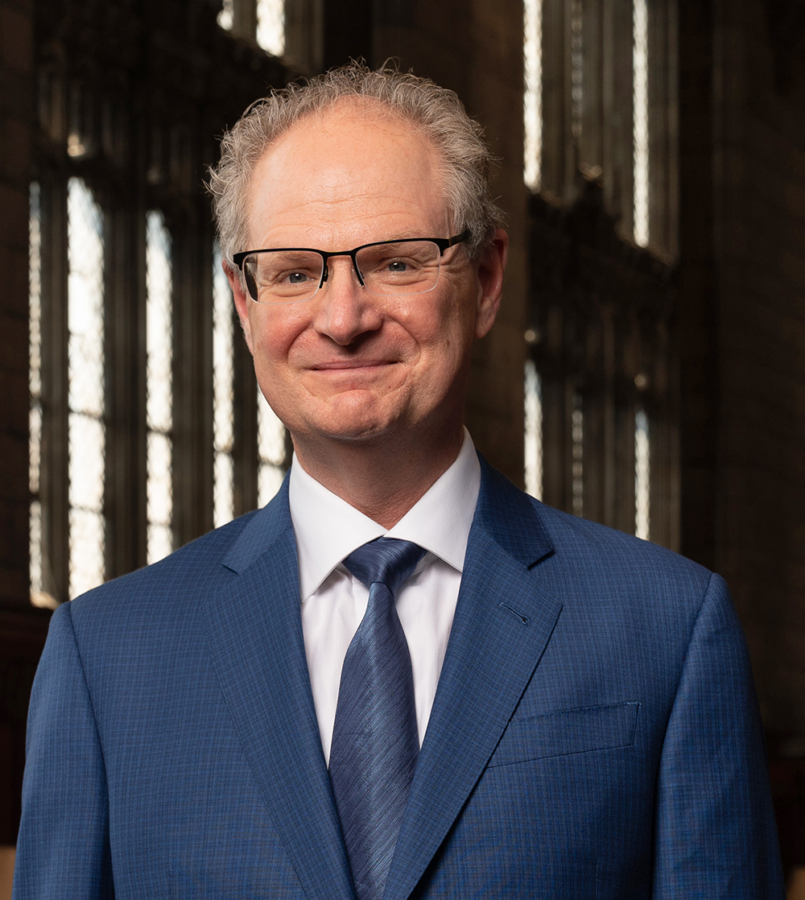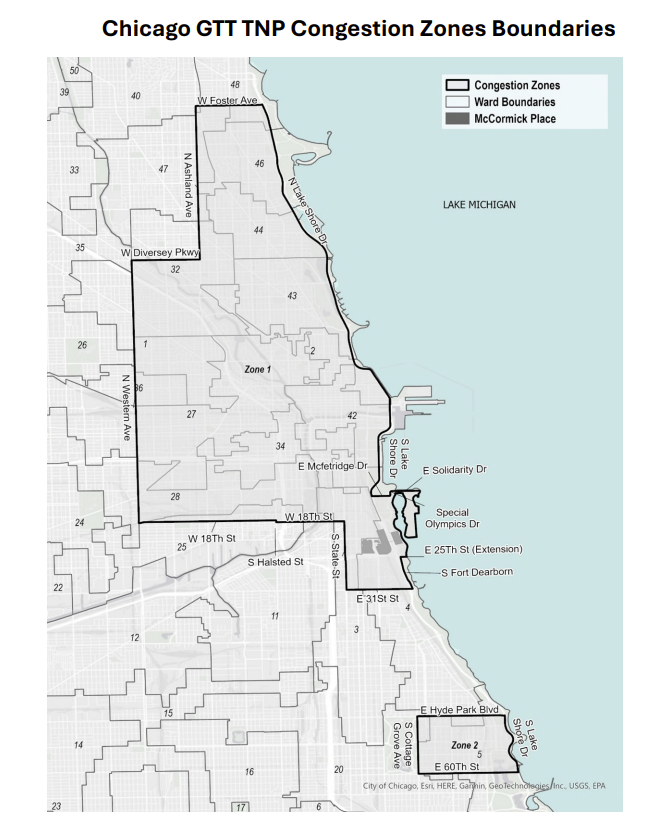Paul Alivisatos (A.B. ’81) was named the 14th president of the University of Chicago in February 2021, following former president Robert Zimmer’s decision to step down for health reasons. This fall marked the first year of Alivisatos’s presidency.
In an exclusive interview, Maroon Editor-in-Chief Gage Gramlick and Managing Editor Yiwen Lu spoke to Alivisatos about his tenure to date, College admissions, safety and security, and the University’s support for graduate students.
Chicago Maroon: You have over a year now as president. What are you most proud of, and what hopes do you have for the future?
Paul Alivisatos: This is a place that really loves shaping and defining new fields of knowledge, so we need to think about how to go about doing that in some really important and interesting directions. Everything here is built off of this culture of the love of ideas, freedom of expression being so central to it. The idea of rigor and quantitation [are] key parts of just the characteristics of the place.
One thing I see here that wasn’t like this when I was a student is this sense of partnership with students and their families about how to build on the educational experiences here to help students on their journeys as they go on to the next stage. And I want to say I’m struck as well by how much student wellness and the student experience are on people’s minds. There’s a willingness to listen and adapt.
Let me give you one example: We have the Lyft Ride program that was suggested by a student. We heard that idea and thought, “Yes, that will make a lot of difference for students.” We jumped in, and we did it. I love that example because I think it shows that when we think about the student experience, we can be collaborative and adaptive.
I will say a few of the programmatic things that I’ve heard over the last year. When we try to think about, for example, new areas for discovery, some areas that have come up are areas like climate and energy. That’s an area where students and faculty from every part of the University are really interested in.
CM: In your reading and conversations with them, how do faculty feel about the 4+1 Master’s Program? Are they excited about it? Is it too early to say?
PA: I think that there’s, too, huge interest in those kinds of ideas partly because they’re also trying to be partners with students around these aspects. And this provides a way for doing that. I found I’ve heard a lot of enthusiasm for it. This will probably start smaller, and then we’ll see how it goes out.
CM: This year, the College has the lowest acceptance rate and highest yield rate in 10 years. I’m curious to hear a little bit about your thoughts on this? Is that a trend that’s going to continue?
PA: The reason we’re such a place that people really want to come to is because we have a distinctive way of doing things. We are a place that really puts enormous value on the love of ideas and a place where freedom of expression is a core piece. We have now added on to this sense of trying to work with students on their journeys. We have the Career Advancement Center and other activities like that.
For us, the most important thing is that we bring to the University students who [think] that’s what they’re looking for. As we go into each academic cycle like this, we just need to ask ourselves over and over again: Are we honoring those core principles and thinking of how to renew them all the time? The numbers are going to do what the numbers do, but our success will come from sticking to those principles.
CM: What do you think the biggest danger to that core essence of the Chicago mindset is right now?
PA: Well, let me say something along those lines that maybe take it in the direction I think you’re suggesting. I have often spoken of what I’ve called the engaged University of Chicago. For us to continue to be successful in the years ahead, we also have to bring a mindset of engagement. When society has very hard challenges, we should be partnering with society and having those challenges in mind and trying to design new programs that help the society to advance. If you’re asking me what the dangers are, in this moment, if we don’t do that, then if we are instead always entirely inward looking, then we will not be the partner to society that we need to and the gulf between the University and society will become large.
CM: The University alerted the community about the seven reports of suspected drug things, yet not all issues of security are shared with the public. We’re thinking, for example, the IOP bomb threat. What information, in your opinion, should be shared with the public and what information should not be shared, and why?
PA: Well, I think that the information should be shared when we think that there’s a substantial and credible situation that the students or others need to be aware of in order to have to take the actions they need to be safe and to protect themselves. So that seems to me like it’s the clear criteria: to give information when we believe that there’s actually a credible threat that will allow people to protect themselves.
CM: Looking at the converse of that, when shouldn’t it be shared?
PA: For example, somebody suggests the possibility that there’s a threat but actually, even the most casual examination suggests that that’s not actually really likely. [It would] be a situation where you’d say, well, you’re sharing information that’s just not really useful to write and then causes lots of challenges for people who are getting information. And they’re thinking, “Oh, well, if the University’s sharing this, it must mean that there’s a very, very live real threat,” when in fact, there really isn’t one. That wouldn’t make a lot of sense. That’s how I would think about it.
There’s just a couple of things that are really, I wanted to say, out there. I just want to remind all students that we really want to do everything that we can to support you in not having any problems in terms of safety and security. And we have a new safety and security website. I would just urge students—even if they’ve been here for a while—to just go back onto that website and just take a look at the things that it says about education and tips and services and approaches that are available.
On this other matter of criminal kind of incidents, like the drink spiking, it really makes an enormous difference to the whole community when people are willing to consider reporting incidents. UMatter @ UChicago is a place where a student can go to find the Dean-on-Call and also a place to go to just find out how to get help and to report things. That would make an enormous difference.
CM: Some of these cases were happening at frat parties, and Greek life is not recognized by the University. Do you have any thoughts about recognition of Greek life at the University?
PA: I will say that I do think that we can do more to make sure that we are educating students about what can go wrong in a party at a fraternity and what can happen. We will certainly want to talk with students about that. I don’t have any new thoughts to share about fraternities.
CM: Graduate students are calling for increases of stipends, which is now a national trend. I am curious about your thoughts on compensation that graduate students should be getting since the inflation is getting worse now.
PA: Let me just say at the outset how important graduate students are to this university. For example, with regard to doctoral students, while they are here as students, they are really engaging in learning how to create new knowledge. We want to be partners in every way with graduate students as they are on that journey. And we are listening all the time to the graduate students in the last few years. UChicago Grad has added a number of new services and programs. We are listening very much to the students about these issues that you’re mentioning around stipend levels. We are committed to being good partners, so we’re looking at the stipend issues very actively.
We are not going to make an announcement now, but we’re working on those aspects as well. And I just want graduate students to know that we are listening hard and also bringing our creativity and trying to think about the things that we can do to make the graduate student experience really good. So that’s very much on our minds.
CM: Do you think recognition of a graduate student union would ever be part of that calculus?
PA: I think that actually, we have a very good approach. Right now, we’re working with the graduate students [in a way] that I think will work better than a collective bargaining arrangement. But of course, the graduate students will have their own opportunities as they see fit. But I think in the current arrangement, we’ve been really doing a lot. And we’re ready to work to do more.
This transcript has been slightly edited for clarity and length.









